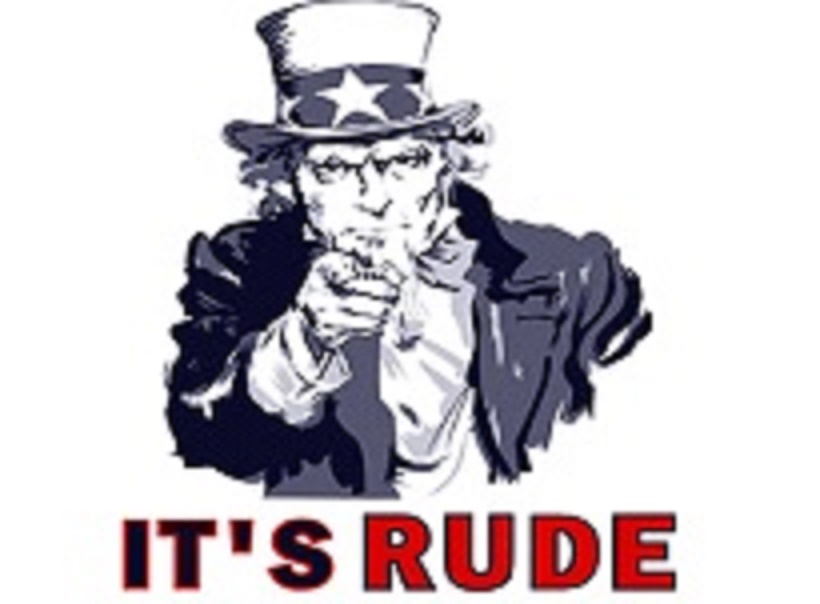They may be common, but a speaking coach warns, you still sound like a bit of a jerk when you use them.
Fill in the gaps in the article with one of the phrasal verbs below. Make sure their grammatical form is correct.
come across knock down shut down
pick up come offx2 point out
(…) most business leaders strive not to be rude. The problem, according to one public speaking coach who is paid to pay careful attention to how people use and receive language, is that even well-intentioned people can be poor at judging if what they’re saying will 1. …… as rude.
Just because it’s common doesn’t mean it’s not rude.
There are many cases where rudeness is obvious. If you’re making blanket negative judgments about a group of people, hogging the conversation spotlight, or loudly gossiping on the phone in the middle of the office, you are unambiguously rude. But as John Bowe notes in his article for CNBC Make It, sometimes phrases slip into common use and become accepted by some while still often rubbing others the wrong way.
You may hear these phrases every day and not be bothered when you’re not on the receiving end of them. Over time, you may 2. ….. them ….. without thinking about it. But when you’re the one these expressions are directed at, their disregard for other people’s opinions and comfort becomes clear. What are some examples? (…)
1. “Here’s the thing…”
“This phrase insists that whatever follows will be the final, authoritative take on the subject at hand. (…) He claims a better option is to just start your sentence with a simple, “I think….” It might be less flashy but this time-tested opener makes clear you’re just sharing your opinion, without making you 3. …….. as dominating or conversation-ending.
2. “We’ll figure out a way.”
Bowe suggests this phrase is a particular sin of business leaders, who use it to 4. …… …… any discussion of employees’ reservations or problems. “Leadership demands that if an employee needs help or tries to communicate about a roadblock, your job is to help them work through it — not to insult them,” he underlines.
If you don’t want to be seen as rude or highhanded, it’s better to signal warmth and openness when an employee raises a potential issue by saying, simply, “Let’s talk about it and figure out a way.”
3. “It is what it is.”
Most of us have reached for this phrase at one time or another when faced with an annoying but seemingly immovable roadblock. The thinking is, if you can’t do anything about it, why spend time and energy discussing it? As Bowe 5. …. …. , the other party in the conversation may need sympathy or advice. 6. …… …… their bid for connection can make you 7. ……. as kind of a jerk.
“Try offering a bit of curiosity and empathy. You don’t need to be phony or overly demonstrative. But saying something as simple as ‘That’s tough. I’m sorry you’re going through that,’ can make a difference by allowing the other person to feel heard,” he suggests. (…)
In order to read the whole article/check your answers, go to: https://www.inc.com/jessica-stillman/3-everyday-phrases-you-might-not-realize-are-actually-rude.
Key: 1.come off; 2. pick them up; 3. come across; 4. shut down; 5. points out; 6. knocking down; 7. come off
Glossary
- blanket – affecting or involving every person or thing in a situation
- to hog – take all of it in a greedy or impolite way
- to rub somebody up the wrong way – to offend or annoy somebody without intending to
- take – a distinct or personal point of view, outlook, or assessment
- inadvertently – unintentionally
- high-handed – using authority in an unreasonable way, without considering the opinions of other people
Practice makes perfect
Watch the first part (0:00-5:30) of the video and answer the questions below:
1. How does the question “Who do you want to be?” impact your professional success?
2. What is the definition of incivility?
3. What are some examples of uncivil behaviours?
4. Why does the perception of incivility vary from person to person?
5. What are the consequences of making someone feel disrespected?
6. What were the results of the study conducted by the speaker and their team?
7. How did organizations react to the study’s findings on the cost of incivility?
8. How does witnessing incivility affect individuals who are not directly involved?
Discuss
- Are you sometimes rude?
- What acts of rudeness bother you most?
- Is there any rude behaviour that you see in public every day?
- How do you feel watching one person being very rude to another person?
- How do you react when sales staff in shops or waiting staff in restaurants are rude?
- Blowing one’s nose in public is OK in England but rude in Japan. Slurping noodles is OK in Japan but rude in England. Who decides what’s rude and what’s not?
Explore more to create your own teaching-learning experience!
Rude Behavior Spreads Like a Disease
Scientists study the contagion of obnoxiousness
Read
https://www.scientificamerican.com/article/rude-behavior-spreads-like-a-disease
(3891)





